#bildungsroman
Explore tagged Tumblr posts
Text
Because the sunset, like survival, exists only on the verge of its own disappearing. To be gorgeous, you must first be seen, but to be seen allows you to be hunted.
― Ocean Vuong, On Earth We're Briefly Gorgeous
#dark academia#literature#poetry#quotes#spilled words#spilled ink#sad quotes#deep quotes#on earth we're briefly gorgeous#ocean vuong#book quote#book quotations#book quotes#classic academia#light academia#book excerpt#books#book qoute#novel#gorgeous#vietnamese#asian authors#epistolary#bildungsroman#modern classics#romantic academia
198 notes
·
View notes
Note
Hi, how to write a Bildungsroman?
Like in the course of a single book, say, Jane Eyre, or in the course of a series, say, Harry Potter.
(Does it have to be linear storytelling for it to be one? Or can I go back and forth with flashbacks, still covering all the important years of a human life, say childhood, adolescence, teen, new adult, adult, etc.?)
Asking anonymously because it feels like I should be knowing this already. 😭
Writing Notes: Bildungsroman
A novel dealing with one person's formative years or spiritual education.
The German word Bildungsroman means “novel of education” or “novel of formation.”
A literary genre that focuses on the psychological and moral growth of a protagonist from youth to adulthood.
This genre is a favorite among writers who enjoy delving deep into character development, tracing the emotional and intellectual journey of their protagonists.
A specific type of coming-of-age story in which the character gains knowledge and experience, even as innocence is lost.
The bildungsroman traditionally ends on a positive note, though its action may be tempered by resignation and nostalgia.
If the grandiose dreams of the hero’s youth are over, so are many foolish mistakes and painful disappointments, and, especially in 19th-century novels, a life of usefulness lies ahead.
In the 20th century and beyond, however, the bildungsroman more often ends in resignation or death.
EXAMPLES
J.D. Salinger’s “The Catcher in the Rye”
Charles Dickens’ “Great Expectations”
Typical Structure of a Bildungsroman
A typical 3-part structure:
The set-up, which introduces the protagonist, most often during his or her childhood.
Experiences that shape the protagonist's character, often culminating in some sort of spiritual crisis or loss of faith.
The protagonist reaches maturity, which usually involves them finding a sense of peace with themselves, or of belonging in the world.
Though this structure is not always used by writers of Bildungsromans exactly as described here, it is extraordinarily common for Bildungsromans.
Another Structure of a Bildungsroman
A Bildungsroman centers on the main character’s transformation to reach maturity. Here’s how the plot may unfold:
Loss: The protagonist experiences a profound emotional loss at the beginning of the story, typically during their childhood or adolescent formative years.
Journey: Inspired by their loss, the protagonist sets out on a journey, either physical or metaphorical, to find the answer to a big question and gain life experience that will help them better understand the world.
Conflict and personal growth: The protagonist’s path toward maturity is not an easy one. They make mistakes and are usually at odds with society. But as the story continues, the protagonist slowly accepts the ideals of society and society accepts them back.
Maturity: The protagonist demonstrates immense psychological growth, change, and maturity by the end of the novel. The story sometimes ends with them giving back and helping someone else on the path to maturity.
Common Features of a Bildungsroman
There are a slew of common characters, themes, and plot devices that authors historically have used when writing novels in the Bildungsroman genre. While no Bildungsroman has all of these features, a true Bildungsroman is likely to have at least one of them.
Common Supporting Characters in Bildungsromans
The Wicked Authority Figure
The Enchanting Same-Sex Friend
The Unrequited Love
The Kindly Teacher
Common Themes in Bildungsromans
God and the Sublime
Class Struggle
Sexual Frustration
The Supernatural
Common Plot Devices in Bildungsromans
Being "sent off" to boarding school, jail, hard labor, or a distant relative's house
Alienation from one's immediate family
Financial crises and/or "rags-to-riches"
Physical punishment and/or harsh living conditions
Fleeing, running away, and travel to an exotic land
Spiritual crises and encounters
Common Protagonists in Bildungsromans
The Orphan
The Misfit
The Runaway
The Artist
Variations of Bildungsroman
Within the genre of Bildungsroman, there are several more specific terms (all of which come from the German language) that have been used to sub-categorize books in the Bildungsroman genre. While these terms aren't used commonly anymore, they do underscore the importance of the themes of growth and formation at the center of every Bildungsroman.
Entwicklungsroman: A novel of development; differs from bildungsroman in that it does not necessarily involve the process of growing up.
Erziehungsroman: (“novel of upbringing”) A novel of education; emphasis on schooling and knowledge, whether academic or otherwise.
Kunstlerroman: A novel about the development of an artist.
Zeitroman: A novel that considers the evolution of the protagonist's socio-cultural atmosphere and era along with his own personal development.
Sources: 1 2 3 4 5 ⚜ More: Writing Notes & References
Nothing to be ashamed about asking this! You can definitely use flashbacks in this genre. Hope this helps with your writing <3
#bildungsroman#writeblr#writing tips#dark academia#spilled ink#writing reference#literature#writers on tumblr#creative writing#writing prompt#fiction#novel#writing inspiration#writing ideas#writing advice#writing resources
49 notes
·
View notes
Text
Robin Sloan’s “Moonbound”
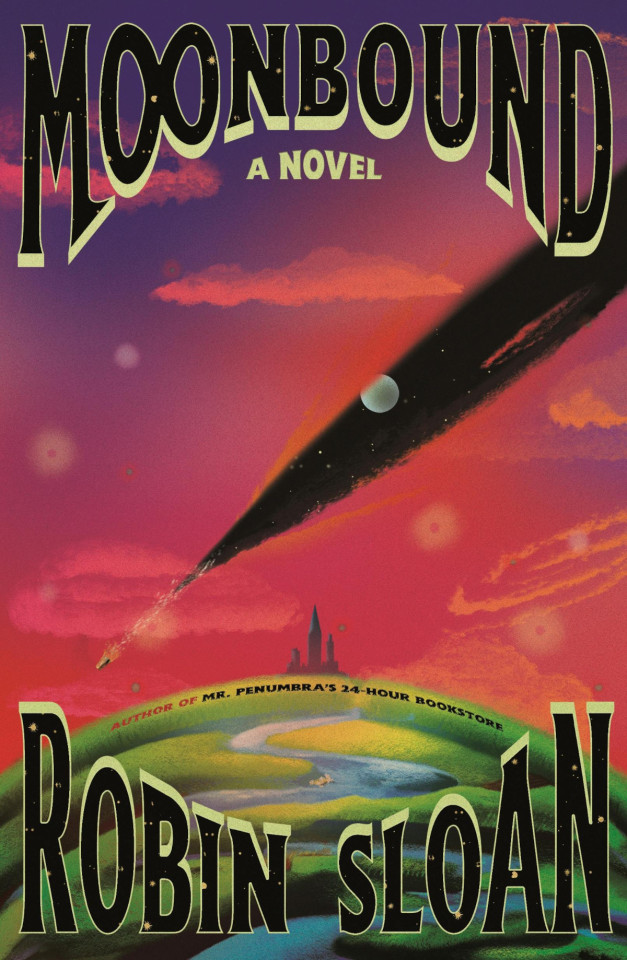
On June 20, I'm keynoting the LOCUS AWARDS in OAKLAND.

Robin Sloan has a well-deserved reputation as a sparkly, fizzy writer, the kind of person who can tell a smart/smartass story infused with fantasy-genre whimsy but grounded in high-tech, contemporary settings (think here of Charlie Jane Anders' gorgeous All the Birds In the Sky):
https://memex.craphound.com/2016/01/26/charlie-jane-anderss-all-the-birds-in-the-sky-smartass-soulful-novel/
In Moonbound, a new, wildly ambitious solarpunk novel published today by Farrar, Strauss and Giroux, Sloan moves out of his usual, daffy, high-tech/high-weird Bay Area milieu and catapults us 11,000 years into the future, to a world utterly transformed and utterly fascinating:
https://us.macmillan.com/books/9780374610609/moonbound
Moonbound's protagonist is a "chronicler," a symbiotic fungus engineered to nestle in a human's nervous system, where it serves as a kind of recording angel, storing up the memories, experiences and personalities of its host. When we meet the chronicler, it has just made a successful leap from its old host – a 10,000-years-dead warrior who had been preserved in an anaerobic crashpod ever since her ship was shot out of the sky – into the body of Ariel, a 12-year-old boy who had just invaded the long-lost tomb.
This is quite a move. This long-dormant, intelligent fungus originates a thousand years into our own future, long after the climate emergency had been (miraculously, joyously) averted and has arrived in a world ten millennia years even further down the line. It must orient itself from its position inside the nervous system of a 12-year-old, and we have to orient ourselves to having an 11,000-year-distant future explained by an intelligent fungus from 1,000 years into our own future.
This is doing fiction in hard mode, and Sloan nails it. The unraveling strangeness of Ariel's world is counterpointed with the amazing tale of the world the chronicler hails from, even as the chonicler consults with the preserved personalities of the heroes and warriors it had previous resided in and recorded.
And in this curious way, we learn of the history of the chronicler's world, and of the strange world so far into the future that Ariel lives in – and becomes incredible consequential to.
Start with the chronicler's world: on the way to solving the climate emergency, the human race figured out how to cooperate on unimaginably massive projects (for example, addressing the world's runaway carbon problem). This pays huge dividends, ushering in a period of thrilling innovation, as humans and the nonhuman intelligences they have constructed collaborate to explore out planet, our solar system, and – thanks to a faster-than-light breakthrough – our galaxy.
A crew of seven are dispatched to the ends of space with great fanfare – but when they return, they are terrified and full of grim purpose. Something they met out there in the galaxy has convinced them that humanity must never look to the stars again. They blanket the planet in a cloak of dust and establish a garrison on the moon from which they destroy any attempts to leave the Earth.
This triggers a savage war against these seven "dragons" and their moonbase. The chronicler's warrior – the one who was entombed for 10,000 years before being discovered by Ariel – was shot down on a last-ditch attempt to destroy the dragons and their base on the moon.
Flash forward 10,000 years. Ariel lives in a weird, medieval-type village, albeit one in which the peasant-types all wear high-tech performance all-weather gear…and the animals all talk. It's a very strange place – there's a sword in a stone, a wizard in a tower…and an airstrip.
Even as the chronicler is trying to make sense of this anachronistic muddle, Ariel is marching towards his destiny. In short order, he finds himself in fear for his life, and then – for the first time in his life or the life of any other villager – Ariel leaves the village.
This kicks off the road-trip part of the novel, a real bildungsroman that sees Ariel, the chronicler, and a whole Wizard-of-Oz's worth of road pals (including a rusty tin-man type robot who is part of a hive mind of thousands of other robots all over the world; oh and a talking beaver) (oh, and a dead guy) (and there's an elk with a symbiotic beehive in its antlers that dribbles a stead stream of honey down its muzzle).
My editor Patrick Nielsen Hayden once articulated a theory of how science fiction works: you have the world, which is a kind of grand thought experiment, and you have a protagonist, who is a kind of microcosm of that world. Think of the world as this big, heavy gear, and the character as a much-faster-spinning gear that meshes with the world, spinning and spinning, pushing the world inchingly around a full revolution:
https://pluralistic.net/2022/07/26/aislands/#dead-ringers
The chronicler is a perfect microcosm of this strange world, where dozens of great civilizations have arisen and fallen – the ruins of a great society of hyperintelligent rats turns out to be very useful on one part of Ariel's quest – and where the dragons brood overall, a menace in the sky that the Earth's inhabitants have all but forgotten, but whom the chronicler can't ignore.
Sloan is really having a lot of fun with his talking animals; his transdimensional gods; his space-maddened, murderous lunar AIs. On the way, he's doing all kinds of really cool tricks – like asking us to really sit with the idea of giving moral consideration to the nonhuman world, including "beings" we currently think of as inanimate objects. This is a great riff:
https://pluralistic.net/2022/06/07/more-than-human/#umwelt
Sloan's debut novel, Mr Penumbra's 24-Hour Bookstore, mixed the tropes and sensibilities of tech culture with a beautiful, escapist fantasy, a "curious little magic shop" tale that was absolutely delightful:
https://memex.craphound.com/2012/11/16/mr-penumbras-24-hour-bookstore-the-perfect-nerdish-fantasy/
And with Sourdough, Sloan's second book, he took that same fascination with the numinous (and with nerdy, obsessive hobbies) to the microscopic plane, with a tale of microorganisms and mystery:
https://memex.craphound.com/2017/09/05/sourdough-a-delicious-story-about-nerdism-and-the-flesh-by-robin-mr-penumbra-sloan/
Moonbound delivers Sloan's third – and best! – fusion of fantasy and science fiction, delving deep into the meaning of personhood, language and moral agency with a road-trip story that visits a dazzling collection of wildly imaginative settings and societies in an epic quest to slay the dragons on the moon.

If you'd like an essay-formatted version of this post to read or share, here's a link to it on pluralistic.net, my surveillance-free, ad-free, tracker-free blog:
https://pluralistic.net/2024/06/11/penumbraverse/#middle-anth
#pluralistic#books#reviews#robin sloan#solarpunk#science fiction#biotech#gift guide#sf#bildungsroman
122 notes
·
View notes
Text
the scholomance series is a queer bildungsroman actually. the bildungsroman is about a person undertaking a journey of personal development but also about the struggle of an individual to articulate a self amidst wider social structures, and the queer bildungsroman specifically is about struggling to create a self in challenge to wider social structures. at least in the article I had to read for class LMAO, which went hard on the idea that a queer bildungsroman is at least partially a challenge to dominant society--creating a self that rejects social scripts they are told to follow.
we see this with el. the main thrust of her character arc is basically articulating and deciding to live up to her ethical values, right? she starts off with a self-conception as this maleficer in training and basically is deeply cynical and has this idea that she's only holding herself back narrowly from going bad. she understands, and practices due to being strict mana, her mother's ethics, without truly making them her own. and she has a bunch of received ideas about what she wants to do with her life, namely, join an enclave and do something. she is influenced by the predominant scholomance morality system of 'do whatever to survive'. so throughout the books she repeatedly faces challenges to her personal ethics and moves from doubting herself to a deep confidence in her own ethical system. and she faces some really thorny challenges! where holding to her strict morals will potentially have negative consequences! she has to face the world and come out as her own person. she has to challenge her ethics and actually commit to them. she also has to reject her cynicism and discover new things about herself. she isn't who she thought she was, she has the capacity to be much better. and it's specifically queer because for her the process of being a person, of being herself, entails rejecting the enclave system, rejecting the social scripts she is told to follow--and I love how this also plays out with her rejecting heteronormativity.
ALSO the fact that wider society is literally trying to kill you during your formative years as a mechanic of this universe is a crazy premise for a bildungsroman makes it next level.
#English major problems#apologizing to the non English majors for the pretentiousness and the literary critics for the abuse of terminology and undergrad analysis#the scholomance series#the scholomance#scholomance#my scholomance meta#scholomance meta#my meta#meta#bildungsroman#I should come back to this later
12 notes
·
View notes
Text
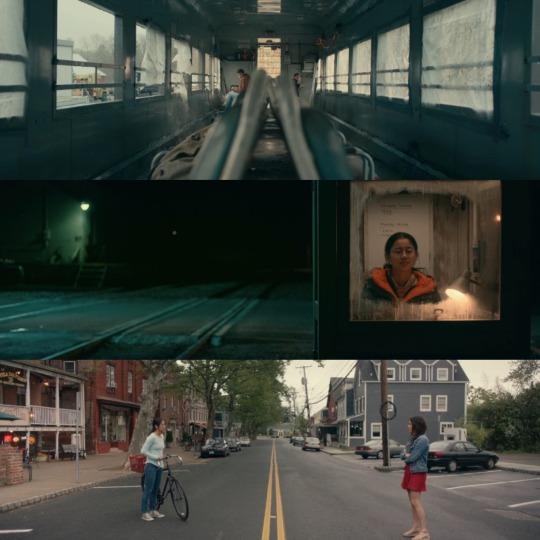
The Half of It (2020, Alice Wu)
10/11/2023
The Half of It is a 2020 American film directed by Alice Wu. The film is loosely based on Cyrano de Bergerac by Edmond Rostand.
The film was released on Netflix on May 1, 2020.
#the half of it#alice wu#cyrano de bergerac#edmond rostand#netflix#coming of age story#Genre studies#genre#literature#theatre#film#Video game#Protagonist#coming of age#bildungsroman#literary criticism#bildung#thomas carlyle#Künstlerroman#youth#the poker house#Winter's Bone#Hick#girlhood#mustang#the diary of a teenage girl#mistress america#the edge of seventeen#lady bird#Sweet 20
46 notes
·
View notes
Note
Has anyone written anything about the development of the bildungsroman? I recently read sartor restartus and it seems like Carlyle aswell as Joyce (Portrait of the artist as a young man) and John barth (lost in the fun house) among others seem to be creating modernist/ironic variations on Goethe's developmental narratives. (Carlyle translated sorrows of young werher iirc) I'd like to know if there are other works in a similar vein or that take the bildungsroman in another direction.
Speaking of men who behave badly, Franco Moretti's book The Way of the World is pretty much the classic study of the genre in recent criticism, arguing for its depiction of youth-in-transition as the central symbol and aesthetic management of incrementally developmental bourgeois capitalist European culture. Sequels in a similar Marxist vein tracing the genre into modernism and postmodernism-postcolonialism include Gregory Castle's Reading the Modernist Bildungsroman and Jed Etsy's Unseasonable Youth. (When last I looked; I don't keep up with academic criticism.)
5 notes
·
View notes
Text






— Harper Lee, from To kill a mockingbird
#to kill a mockingbird#harper lee#book recommendation#bildungsroman#coming of age#childhood#innocence#courage#social issues#racial injustice#internalized prejudice#classic literature#favorite quotes#book quotes#inspiration#american literature#scout finch#jem finch#atticus finch
91 notes
·
View notes
Text
In allem gab es diese Dunkelstellen, wo die Erfahrung aufhörte und die Erinnerung anfing. Etwas blieb, und etwas ging verloren, manches schon im Augenblick des Geschehens, und wie sehr man sich auch bemühte, es tauchte nie wieder auf. Erinnerungen waren über die Zeit verstreut wie Lichtungen. Man begegnete ihnen nur zufällig und wusste nie, was man darin fand. Die eindrücklichsten Momente, das, was sich nicht verlor, gehörte einem nie ganz alleine. Die Angst gehörte einem alleine. Das Vergessen. Alles sonst, dachte Lev, bleibt nur durch andere gegenwärtig.
Iris Wolff, Lichtungen (2024).
#2025 reads#iris wolff#lichtungen#reading recommendations#sprachlich stark und dicht erzählt#faszinierende figuren#gutes tempo#lev und kato#quick read#love story#bildungsroman#memory culture#transnational literature#habe gerade entdeckt dass es eine offizielle playlist der autorin zum buch gibt die natürlich “lovesong” von the cure enthält#was die spatort vibes in den ersten kapiteln nochmal verstärkt ;-)
5 notes
·
View notes
Text

15 notes
·
View notes
Note
Why is it that Sebastian seems to somehow be in control when dealing with Our Ciel, but appears to be dumbfounded when dealing with BD Real Ciel? Has something changed within this demon butler? Where is Sebastian's sneakiness, and underhanded cleverness?
The best I can tell is because Sebastian is bound to our earl in that contract, which has some wiggle room for him... and even though there's some novelty about this contract, it's not his first. He knows the loopholes in the contract and can act accordingly. And he knows what makes his young master tick.
But he's still trying to process exactly how real Ciel even functions as well as he does. He ate real Ciel's soul, but that doesn't seem to bond them together. Not like that, anyway. He's honestly confused.
He has no control over anyone who is soulless. I don't think he can comprehend their thought processes and might not be able to anticipate their moves or choices too well, because of that. Hell, he can't even tell a bizarre doll is in the same room, let alone anywhere within the vicinity, without actually seeing them. That's why he couldn't detect Arden and his friends at Weston when he used demon senses to search for them, felt weirded out when he touched Agares' hand, and couldn't locate any of the star lords at Sphere Music Hall -- they were probably simply hiding just out of sight.
This is a major learning experience for the demon. This is completely outside the purview of his knowledge. It's new to him... and kind of scary.
I should think it worries him also because he must now question what he's said in the past about not being able to get back what was lost.
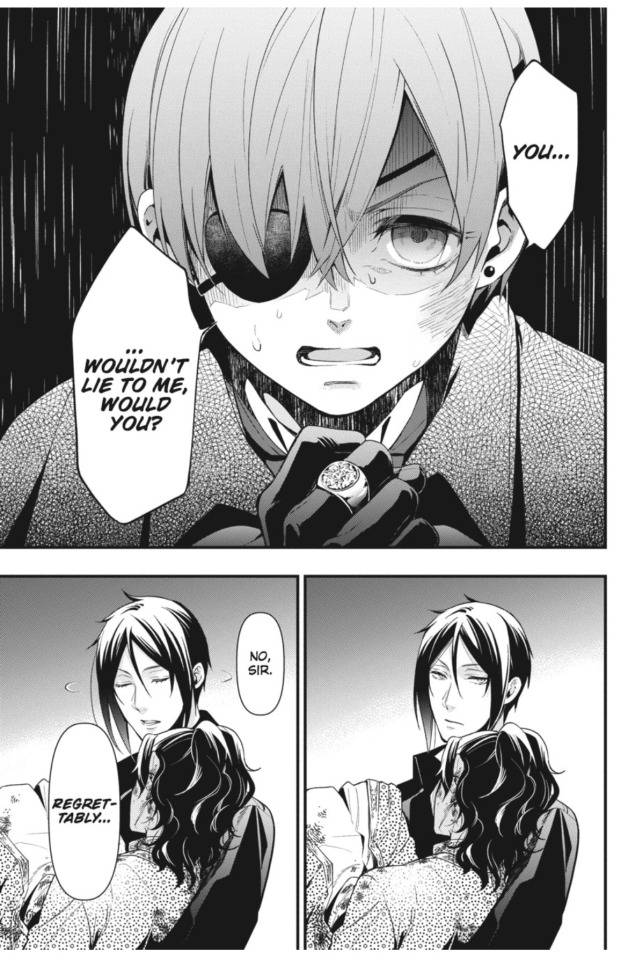
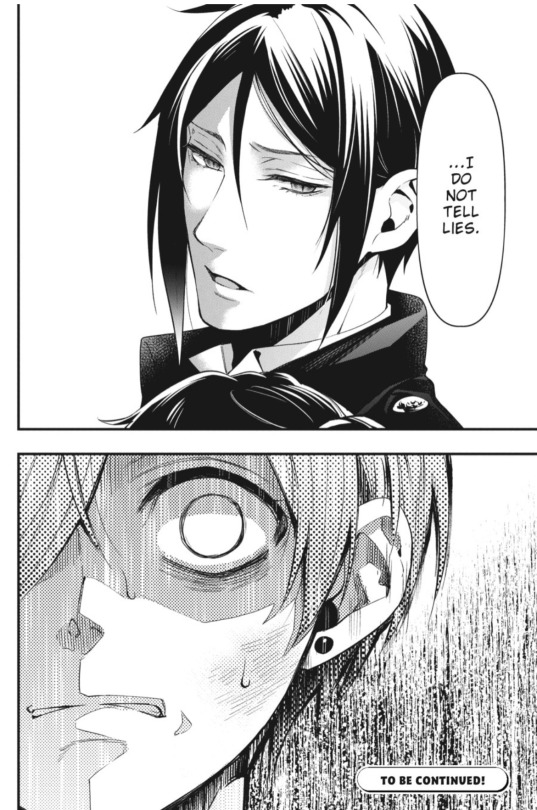
Of course, what has returned isn't quite the real Ciel that our earl once knew and cherished. It's a nightmarish approximation. Merely a physical manifestation, literally without soul. But the physical manifestation still evokes deep emotions.
So, the demon finds himself in the weeds on this one. How do you handle a reanimated corpse that's "chock full of episodes"? Can you just cut it down in front of its loved ones? Our earl doesn't accept this bizarre doll of his brother as "his brother returned", but I don't think he would handle it well if Sebastian just went over and crushed real Ciel's head. He has to let his young master decide how to handle the situation.
I still anticipate their final confrontation to be more emotional than physical, between the twins. Maybe real Ciel will be more physically aggressive than our earl. And for Sebastian to be somehow barred from intervening on his young master's behalf... much like how Lucas didn't want to harm his dead and reanimated older mirror twin, Claus... and how Boney couldn't protect or fight on Lucas' behalf... during the twins' final confrontation in Mother3.
#black butler#kuroshitsuji#sebastian michaelis#earl phantomhive#our earl#real ciel#ciel phantomhive#bizarre doll ciel#bizarre dolls#demon abilities#demon limitations#new experiences#bildungsroman#mother3#lucas#claus#boney#confrontation#minnesotamermaid71#asks#i answer#answered asks#may 7 2023#ch128#manga panels
51 notes
·
View notes
Text
Sie nannten ihn Vokuhila
Alle in der Grundschule hatten Angst vor ihm. Es hieß, er esse lebende Frösche zum Frühstück, mit einem Glas Wodka und zwei Rothändle-Zigaretten dazu. Selbst im Winter trug er Shorts, so dass die rot-schwarz-grünen Tätowierungen wilder Fratzen an seinen dicken Beinen für die ganze Welt sichtbar waren. Er schritt mit weit ausladenden Armen und wankend wie ein Seemann dahin, dass die langen…

View On WordPress
#Bildungsroman#Erinnerung#Ford Capri#Johannes Beilharz#Kurzgeschichte#Siebzigerjahre#Ultrakurzgeschichte#Vokuhila
33 notes
·
View notes
Text
writing “romantasy” and I’m like, wait. what do you mean the “roman” doesn’t mean Bildungsroman???
#writing#writeblr#fantasy#writers on tumblr#bildungsroman#this is a terrible but also very appropriate pun
7 notes
·
View notes
Text
Writing Tips: Coming of Age
A Bildungsroman is a literary genre that focuses on the psychological and moral growth of the protagonist from childhood to adulthood (coming of age). This genre is rich with themes of personal growth, self-discovery, and maturity.
1. Initiation and Emotional Loss: Bildungsromans often begin with a significant emotional loss or a disruptive event that propels the protagonist into their journey of self-discovery. This loss serves as a catalyst for change and marks the end of the character's childhood innocence.
2. Quest for Answers: The central character in a Bildungsroman is typically a sensitive individual who seeks answers and meaningful experiences. They embark on a quest, whether physical, emotional, or intellectual, to gain a deeper understanding of themselves and the world around them.
3. Gradual Maturity: The primary goal of the Bildungsroman is the protagonist's maturation, which occurs gradually and is often fraught with challenges and obstacles. This journey towards maturity is a central narrative thread and can encompass a range of experiences, from education and personal relationships to self-discovery and self-acceptance.
4. Conflict with Society: A common element in Bildungsromans is the conflict between the protagonist and society. Initially, the protagonist may reject or rebel against societal norms and values, leading to tension and conflict. This clash with societal expectations is a crucial part of their growth.
5. Acceptance into Society: As the story progresses, the values of society are gradually embraced by the protagonist. They begin to understand and appreciate the norms and expectations of their culture or community. Ultimately, the protagonist is accepted into society as a mature, responsible individual.
*There is increasingly a modern subversion to this, where it is the society that changes and learns to accept the different views of the protagonist. This is a great example of a flat arc.
6. Helping Others: In some Bildungsromans, after achieving maturity, the protagonist may use their newfound wisdom and experiences to help others. This can be a redemptive element, where they seek to right past wrongs or positively influence the lives of those around them.
7. Resolution and Character Development: Bildungsromans typically conclude with a resolution that highlights the protagonist's personal growth and transformation. They are no longer the same person they were at the beginning of the story, and their journey towards maturity is complete.
8. Variations and Themes: While the Bildungsroman follows a general pattern, it can take on various themes and settings. Whether it's a classic coming-of-age story in a school setting, a tale of self-discovery in a distant land, or a modern exploration of identity, the genre is adaptable and relevant across cultures and time periods.
One popular example of a coming-of-age story is Are You There God? It’s Me, Margaret(book and movie). I reviewed the movie here.
This is part of my Writing Tips series. Everyday I publish a writing tip to this blog.
23 notes
·
View notes
Text
Could
@flashfictionfridayofficial

Why not a lawyer, a doctor, or an engineer? Born and raised with all the resources a kid had for a successful education. A plethora of books from physics to history, a school in a decent neighborhood, and swept up in the girlhood zeitgeist of nothing being impossible. So why couldn't Abigail meet those expectations?
Different scenarios played in her head, rewinding to important, or seemingly important, moments that were at crossroads for the future. None of them satisfied her, so she spent half her time in her head and half in menial jobs. Abigail tried to live in the moment with partners, hobbies in clarinet and ceramics, volunteering at shelters. But that shame of not rising above her background sunk its teeth deep in her brain.
Abigail went from an energetic girl to a hopeful teenager to a cautious adult. It seemed hardly feminist to be saddled with lingering issues at home and at life when career and independence were the forefront of anyone who wanted to be a somebody. Yet she wouldn't admit how much dealing with physical and invisible pain affected her sleeping and eating, let alone any kind of ambition. Nor how friends would go separate ways without catching up or being there when her family wasn't around. When her prodigal and dutiful sister was off chasing her dream since childhood.
Her own dreams were a muddled mess of interests bubbling up and down in a stew with no ingredients tasting well together. Some days she wanted to learn how to be an actress, an astronaut, or a famous musician. Other days she wanted to stay in bed like a body in a casket. Too much and too little and time was inching closer to trap her in quicksand.
But she needed the right words as road signs reminding her of unsung accomplishments. Having the will to go on despite hardships. Being helpful and kind to those who need it. Having the intelligence and introspection to change life and self to make sense of it all. Professionals are in no short supply, but somebody like Abigail only arrives in life once, and it could make the difference if anyone made it clear to her.
5 notes
·
View notes
Text
"That's the thing about girls. Every time they do something pretty, even if they're not much to look at, or even if they're sort of stupid, you fall in love with them, and then you never know where the hell you are."
"The Catcher In The Rye" by J. D. Salinger
#catcher in the rye#jd salinger#holden caulfield#ya novels#bildungsroman#literature#literature quotes#bookworm#book quotes#fiction#novel#coming of age#teenage angst#growing up#realism#literary realism#first person#the catcher in the rye#first person narrative#first person pov#emotional#adulthood#late modernism#modernism#loss of innocence#teenage rebellion#david copperfield kind of crap#new york#new york city#teenage depression
38 notes
·
View notes
Text
THE BAD KIDS AS CHASE PETRA SONGS BC I CAN!! Part One!
Adaine Abernant - Monet Issues

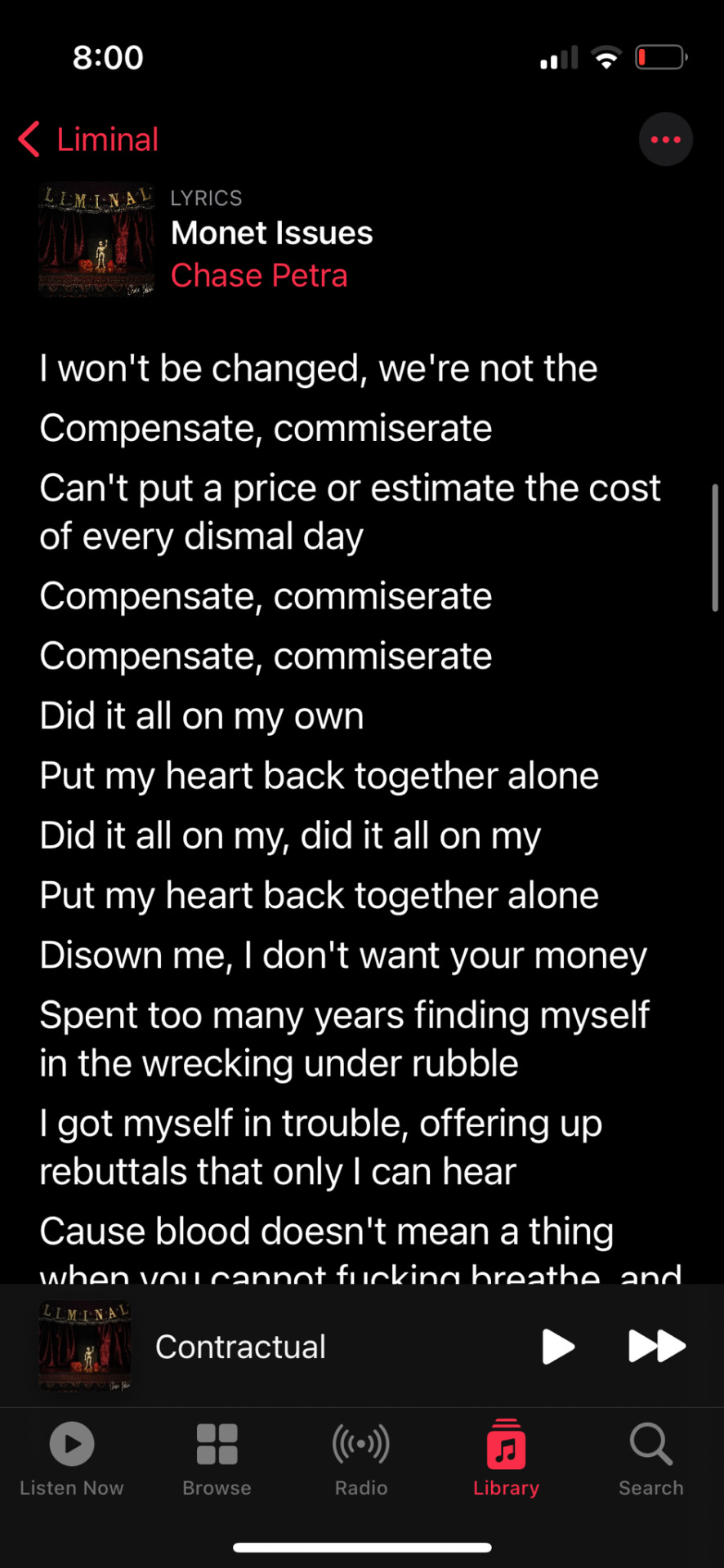
Fabian Seacaster - Pacific
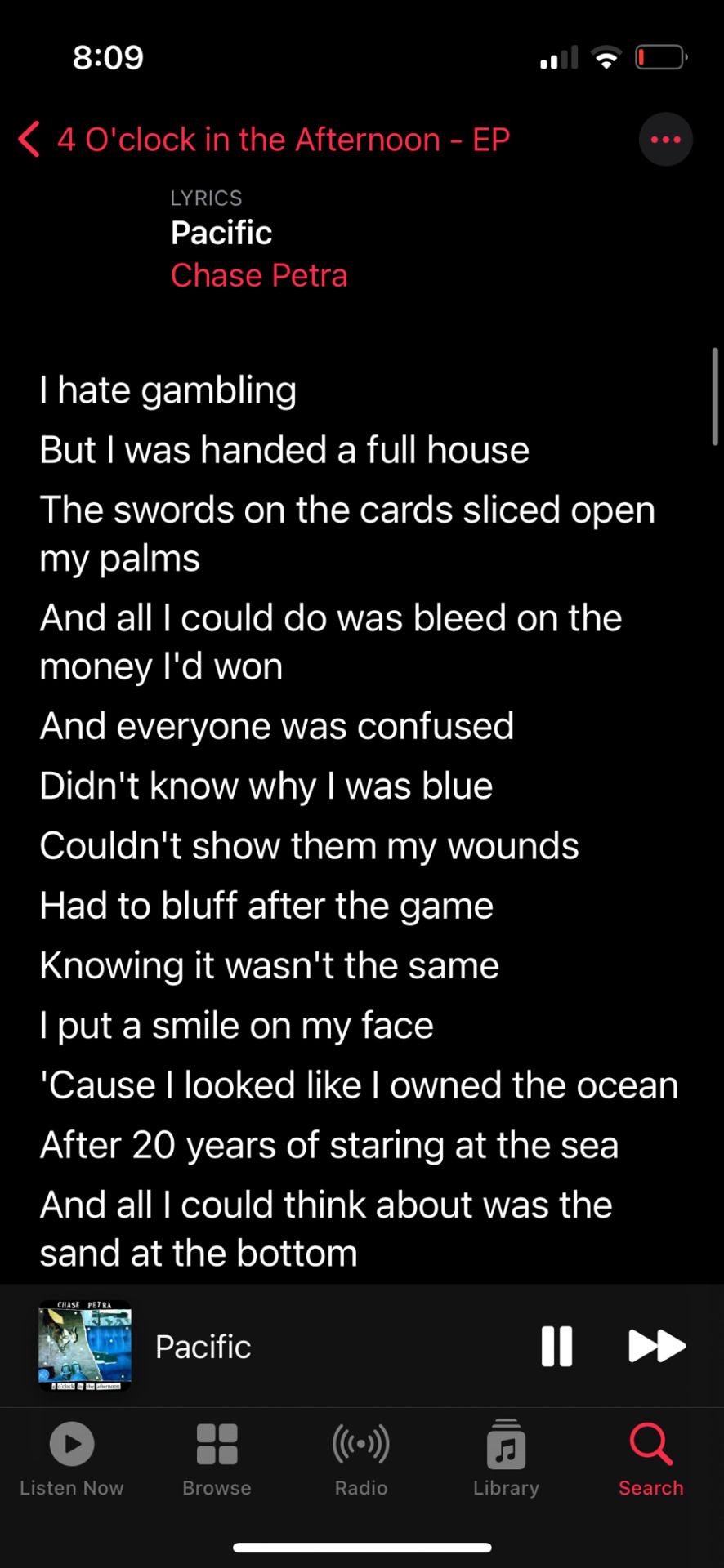
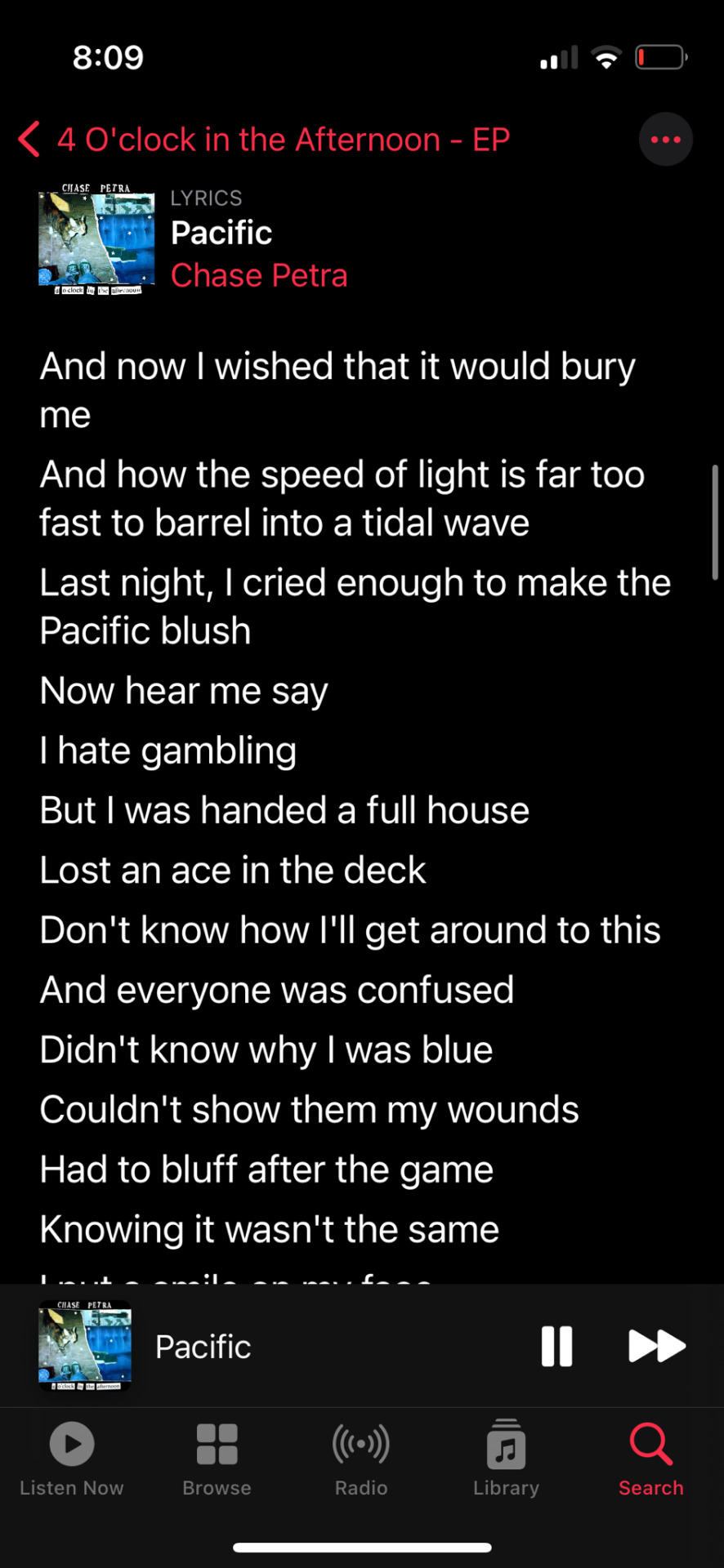
Figueroth Faeth - Bildungsroman


#dimension 20#fantasy high#adaine abernant#fabian seacaster#fig faeth#figeroth faeth#adaine fantasy high#fig fantasy high#fabian fantasy high#fabian aramais seacaster#chase petra#bildungsroman#pacific#monet issues
24 notes
·
View notes